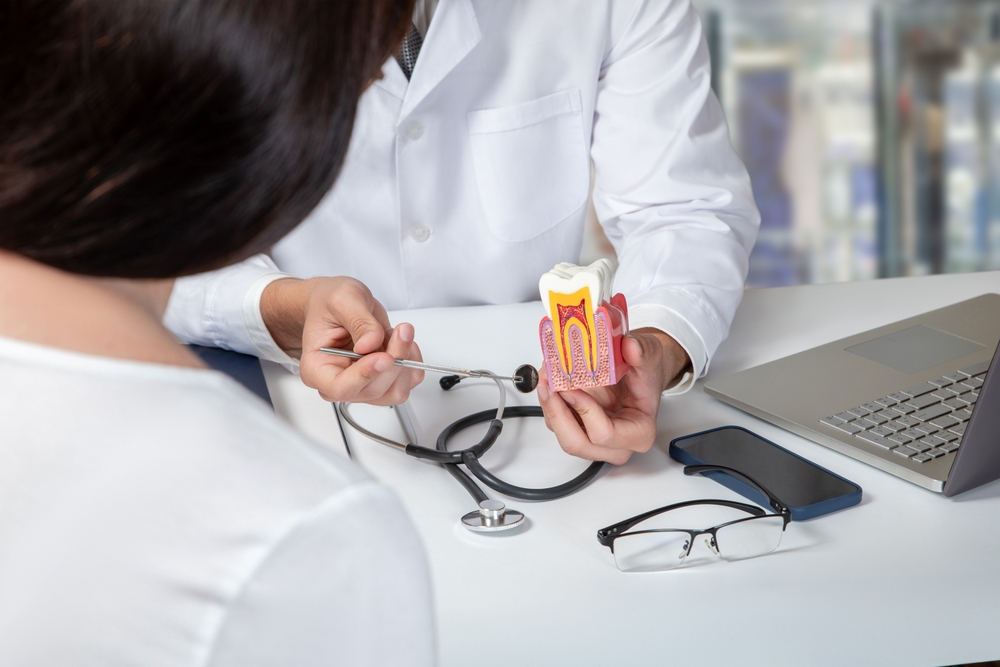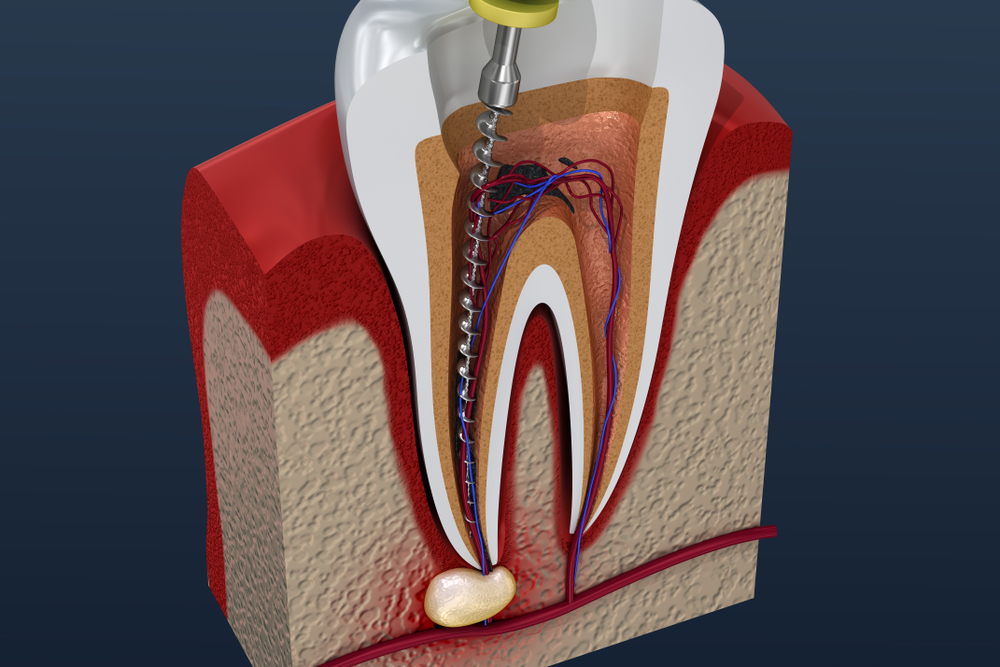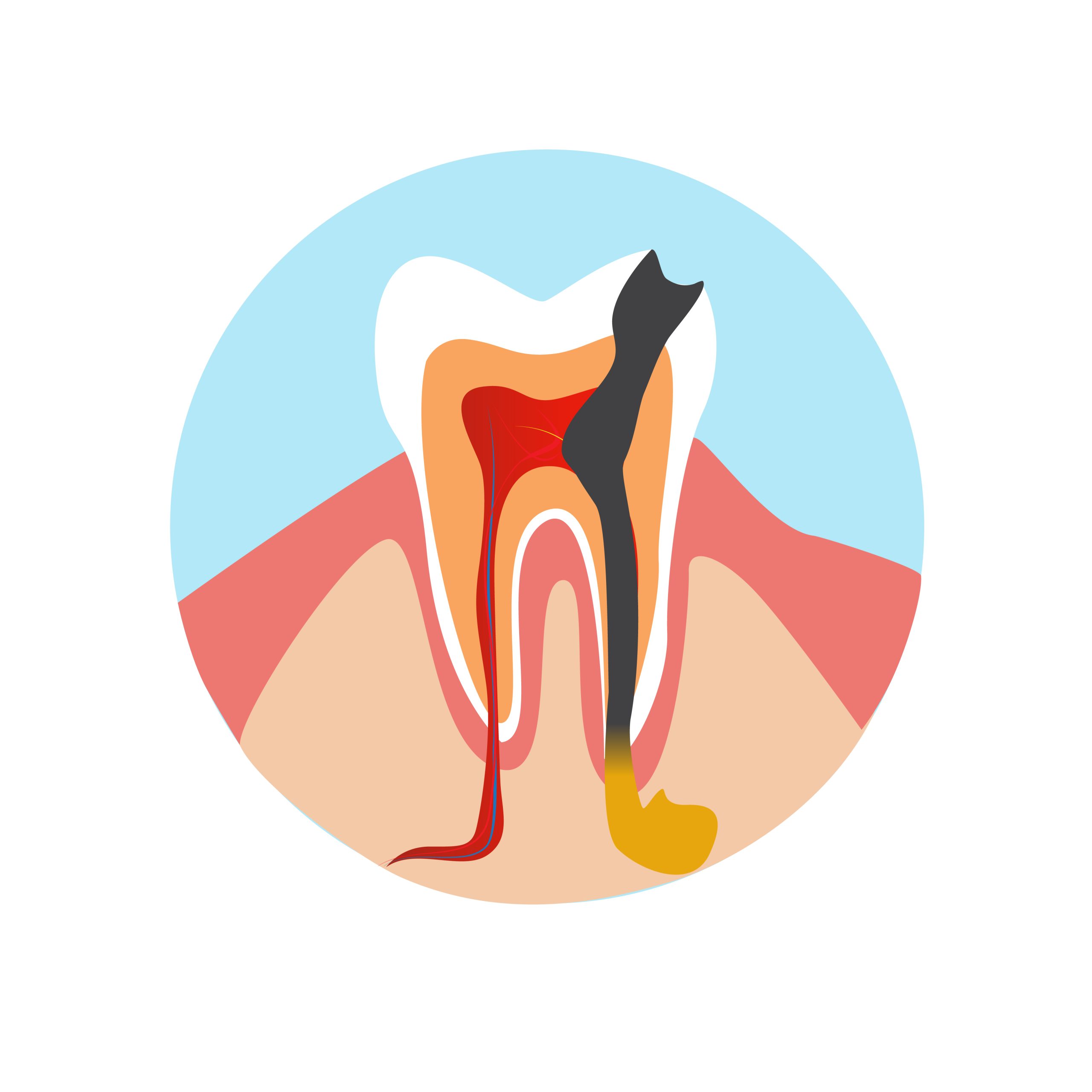Dental infections are a common problem that can cause significant pain and discomfort. If left untreated, infections of the teeth can lead to serious health problems, including tooth abscesses, bone loss, and even life-threatening conditions like sepsis when bacteria enter the bloodstream.
While there are several treatment options for dental infections, root canal therapyis often the most effective and long-lasting solution. Root canal treatment involves numbing the area, removing the infected pulp, and protecting the treated tooth with a crown to eliminate infected tissue and prevent future issues.
At Pearland Dental Group, Dr. Rushi Dave and Dr. Mili Shah want patients throughout Pearland, League City, Pasadena, and Galena Park, TX, to understand the importance of root canal therapy in treating dental infections, ensuring they get the dental care they need before further complications can occur.
Don’t let dental infections compromise your health. Call ourPearland, TX, dental practicetoday at (281) 993-9900to schedule a comprehensive evaluation. Serving Galena Park, Deer Park, & Webster, TX.
When facing a dental infection, choosing the right dental team is crucial for effective treatment and your overall comfort. At Pearland Dental Group, we offer comprehensive care for infections of the teeth that sets us apart from other practices. Dr. Rushi Dave and Dr. Mili Shah bring extensive experience in diagnosing and treating even the most complex infections.
Our practice utilizesadvanced diagnostic technology, including digital radiography and 3D imaging, allowing our team to precisely locate infections and plan targeted treatments. This technology-forward approach to dental services, combined with our doctors’ continuing education in the latest endodontic techniques, ensures you receive the most effective care possible.
We understand that infections of the teeth can be painful and anxiety-inducing, which is why we’ve designed our practice around patient comfort. Our compassionate team provides a calming environment and offers sedation options for anxious patients.
Serving Pearland, League City, Pasadena, and Galena Park, TX, we provide prompt appointments for dental emergencies and develop personalized treatment plans that address not just the immediate infection but your long-term oral health needs. Experience the difference at Pearland Dental Group. Call (281) 993-9900toschedule your appointment with our Pearland, TX, dental team.
Dental infectionsare caused by harmful bacteria that invade the teeth, gums, and other parts of the mouth. These bacteria can enter the body in various ways, including through tooth decay,gum disease, or injury to the mouth. When the bacteria multiply, they can cause inflammation, pain, and swelling.
On a microbiological level, infections of the teeth typically involve multiple bacterial species, with anaerobic bacteria (those that thrive without oxygen) playing a particularly significant role in deep infections. These bacteria produce enzymes and toxins that damage surrounding tissues and trigger your body’s inflammatory response, resulting in the classic signs of infection: redness, swelling, heat, and pain.
There are varying types of dental infections, each affecting different parts of the oral cavity:
A tooth abscessis a pocket of pus that forms around the root of a tooth. Abscessed teeth can cause significant pain and require prompt treatment by a dentist. It’s usually caused by an untreated cavity, cracked tooth, or severe gum disease. The infection begins in the tooth’s pulp chamber and spreads to the surrounding tissues. Symptoms may include severe throbbing toothache, sensitivity to hot or cold, swelling of the face or cheek, tender lymph nodes, and fever.
Gingivitis is an inflammation of the gums caused by the buildup of plaque, a sticky biofilm of bacteria that forms on teeth. The bacteria in plaque produce acids that irritate gum tissue, causing redness, swelling, and bleeding during brushing or flossing. If left untreated, it can progress to periodontitis, a more advanced form of gum disease that can lead to tooth loss and systemic health problems.
Periapical abscessis a type of infection that occurs at the tip of the tooth root, usually as a result of tooth decay or trauma that allows bacteria to reach the dental pulp. Bacterial infections can lead to the development of pus pockets around the tooth’s root, as the same bacteria responsible for gum disease and tooth decay spread through the root canal system to the bone surrounding the tooth root tip. It can cause localized pain, swelling, and may lead to the formation of a painful tooth abscess filled with pus, cellular debris, and bacteria.
A periodontal abscessforms in the gums rather than the tooth root. It often arises from untreated periodontal disease when bacteria become trapped in a periodontal pocket (the space between the tooth and gum). This bacterial infection can cause swelling, gum pain, and pus discharge. Periodontal abscesses can be recurring if the underlying periodontal disease isn’t addressed.
Ludwig’s anginais a severe, rapidly spreading infection that affects the floor of the mouth, usually spreading from an infected tooth or gum. It involves multiple tissue spaces under the tongue and can cause bilateral swelling in the submandibular region. This serious condition can lead to swelling of the neck, difficulty swallowing, and potentially life-threatening airway obstruction, and is considered a dental emergency requiring immediate attention.
Experiencing symptoms of a dental infection? Early intervention is crucial to treat tooth infections. Call Pearland Dental Group at (281) 993-9900to schedule a same-day emergency appointment.
The symptoms of dental infections can vary depending on the severity and location of the infection. Some common symptoms include:
If you’re experiencing any of these symptoms, call Dr. Dave or Dr. Shah at (281) 993-9900to schedule a consultation. If left untreated, infections of the teeth can wreak havoc on other teeth, your dental health, and potentially lead to systemic complications.
Several factors can contribute to the development of infections. Understanding these causes can help you take preventive measures:
Inadequate brushing and flossingallow bacterial plaque to accumulate on teeth and gums. Over time, these bacteria can penetrate dental tissues, particularly if there are already compromised areas such as small cracks or worn enamel. The bacterial biofilm becomes more complex and pathogenic the longer it remains undisturbed.
Cavitiescreate pathways for bacteria to enter the inner layers of the tooth. As decay progresses through the enamel and dentin, it eventually reaches the tooth pulp in the pulp chamber—the inner sanctuary containing the tooth’s nerves and blood vessels. Once bacteria breach this barrier, infection of the pulp tissue (pulpitis) occurs, which can progress to a full-blown dental abscess if left untreated.
When the gums become inflamed and infected (gingivitis), the condition can progress to periodontitis, where the supporting structures of the teeth, including the periodontal ligament and alveolar bone, become involved. This creates deeper pockets around teeth where bacteria can flourish, protected from oral hygiene measures, leading to persistent infections.
Trauma to the mouth, such as a broken tooth, a cut on the gum, or a dental procedure that creates an opening in the tissue, can create an entry point for bacteria. Even microscopic cracks in teeth from grinding or clenching can sometimes provide sufficient access for bacteria to enter the pulp chamber.
People with compromised immune systems, such as those with diabetes, HIV/AIDS, or undergoing chemotherapy or immunosuppressive therapy, are more susceptible to infections of all kinds, including dental infections. Their bodies may struggle to control bacterial populations that a healthy immune system would easily manage.
Failed or deteriorating dental restorations, such as dental fillings, tooth crowns, or dental bridges,can create margins where bacteria can enter and cause secondary decay. Root canal treatments that were incomplete or became reinfected can also lead to persistent dental infections.
Preventing infections and tooth abscesses is necessary for maintaining good dental health. Here are some evidence-based strategies to help keep your teeth and gums healthy:
Ready to establish a preventive care routine? Call Pearland Dental Group at (281) 993-9900to schedule your comprehensivedental exam and professional dental cleaning.
Root canal therapy is crucial in treating dental infections for several reasons:
By removing the infected or damaged pulp tissue from inside the tooth, root canal therapy eliminates the primary source of the infection. The procedure involves creating a small access opening in the crown of the tooth, through which specialized instruments are used to clean out the infected pulp tissue, bacteria, and bacterial toxins from the pulp chamber and tooth roots. Accessing the tooth roots is crucial to ensure all infected tissue is removed and the tooth is properly filled and protected.
After removing the infected tissue, the root canal system is thoroughly disinfectedusing antimicrobial irrigating solutions. These solutions, such as sodium hypochlorite and chlorhexidine, penetrate areas that mechanical instruments cannot reach, ensuring comprehensive elimination of bacteria throughout the complex root canal anatomy.
Following cleaning and shaping, the root canal system is sealedwith biocompatible materials (typically gutta-percha and dental cement) to prevent reinfection. This three-dimensional seal prevents bacteria from re-entering the root canal system and causing recurring infections.
Without treatment, dental infections can lead to tooth loss. Root canal therapy can save the affected toothand prevent the need for more extensive dental work, such as adental implantor a dental bridge. Maintaining your natural teeth helps preserve your jawbone density and keeps adjacent teeth from shifting.
Dental infections can spread beyond the tooth to facial spaces, sinuses, or even the bloodstream, potentially causing serious systemic health problems. By treating the infection with root canal therapy, the risk of the infectionspreading to other areas of the body is significantly reduced.
Dental infections can cause intense pain and make normal functions like eating difficult. Root canal therapy relieves this painby removing the inflamed pulp tissue where the nerves reside. After treatment and restoration, the tooth can function normally again, allowing you to eat, speak, and smile with comfort.
Dental infections themselves cannot be directly transmitted through casual contact, like handshakes or airborne particles. However, the bacteria that cause infections in the teeth can potentially be spread through direct exchange of saliva, such as sharing utensils, drinking glasses, or toothbrushes. This is particularly concerning with certain types of oral bacteria associated with periodontal disease.
It’s worth noting that individuals with healthy oral environments and strong immune systems are less susceptible to developing infections even when exposed to these bacteria. To minimize risk, practice good oral hygiene, avoid sharing personal items that come into contact with saliva, and maintain regular dental checkups at Pearland Dental Group.
In rare cases, a minor tooth infection might appear to resolve temporarily as the body’s immune system fights the bacteria. However, this apparent improvement is typically temporary and misleading. Without professional treatment, the underlying cause remains unaddressed, allowing bacteria to continue multiplying within the protected environment of the tooth structure where immune cells have limited access.
What often happens is that symptoms may subside as pressure is relieved (such as when a dental abscess drains), but the infection continues to damage surrounding tissues and can flare up again with greater intensity. For these reasons, dental professionals strongly recommend proper treatment rather than hoping for spontaneous resolution.
The timeline for how a tooth infection progresses varies considerably based on the individual’s immune response, the virulence of the bacteria involved, and the location of the infection. Some infections may develop slowly over months, while others can rapidly escalate within days. What’s certain is that untreated infections invariably worsen over time.
Initial stages may present as mild discomfort, but as bacteria multiply and inflammation increases, severe dental pain, swelling, and systemic symptoms like fever can develop. In extreme cases, infections can spread to facial spaces, the sinuses, or even the bloodstream, potentially becoming life-threatening within weeks. This unpredictable progression is why doctors emphasize timely treatment at the first sign of dental infection.
If antibiotics alone don’t resolve an infection of the teeth, this typically indicates a need for more definitive treatment to address the source of the infection. Antibiotics can help control bacterial spread temporarily, but they cannot penetrate deeply into an abscessed tooth where the blood supply has been compromised. In these cases, procedural intervention such as root canal therapy or, in some cases, tooth extraction is necessary to remove the source of infection.
At Pearland Dental Group, if antibiotics don’t produce the expected improvement, Dr. Dave or Dr. Shah will reassess your condition, possibly adjusting the antibiotic regimen or, more likely, proceeding with appropriate dental procedures to eliminate the infection at its source and prevent recurrence.
Dental infections can indeed have significant implications for your overall health, extending far beyond the mouth. Research has established connections between oral infections and systemic conditions, including cardiovascular disease, diabetes complications, respiratory infections, and adverse pregnancy outcomes.
This relationship works through several mechanisms: bacteria can enter the bloodstream (bacteremia), inflammatory mediators from oral infections can travel throughout the body, and the immune system’s prolonged response to oral infections can contribute to systemic inflammation.
Dental infections can be painful and potentially serious if left untreated, but root canal therapy at Pearland Dental Group can effectively eliminate these infections and preserve your natural teeth. If you experience any symptoms of a dental infection, such as tooth pain, sensitivity, or swelling, our experienced team is ready to provide prompt, compassionate care.
Dr. Dave and Dr. Shah serve patients throughout Pearland, League City, Pasadena, and Galena Park, TX, with advanced diagnostic tools and treatment techniques. With proper dental treatment, including precisely performed root canal therapy, most dental infections can be successfully resolved, allowing you to return to pain-free living.
Call (281) 993-9900to schedule a consultation fordental infection treatment in Pearland, TX, and get your dental health back on track. Your comfort and well-being are our top priorities.






Our clinic offers all kinds of services and constantly study new
technology to add new custom services to the list
Phone: (281)993-9900
Address: 1812 E. Broadway St. Pearland, TX 77581
Copyright © 2021 Pearland Dental Group | Managed by Now Media Group